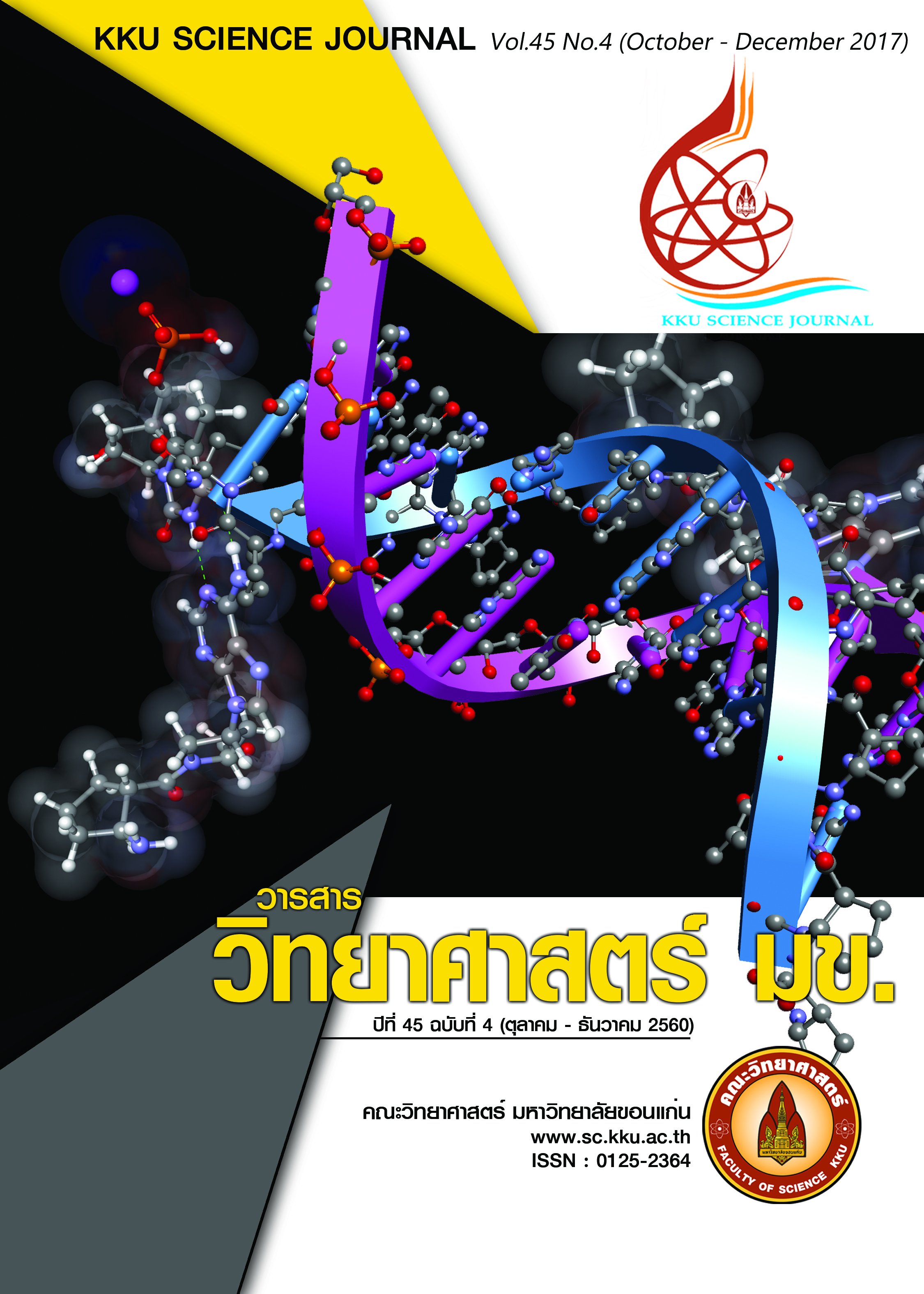Life Cycle Assessment of Electricity Generation from MSW-RDF Gasification Technology
Main Article Content
Abstract
This paper aims to evaluate Life Cycle Assessment (LCA) of electricity generation from municipal solid waste (MSW) to refuse derived fuel (RDF) gasification technology. For analysis, electricity production was categorized into 3 processes 1) MSW transportation; 2) refuse derived fuel (RDF) production and 3) gas generation, gas cleaning and electricity generation and the life cyclewas25 years. The LCA results showed that the electricity generation with this technology caused the environmental impact 9.10E+05 NETS or 2.23E-03 NETS/kWh from all of the activities. The process of gas generation, gas cleaning and electricity generation had the highest impact of 7.06E+05 NETS, while the impacts of MSW transportation and RDF production were 1.10E+05 NETS and 9.83E+04 NETS, respectively. Regarding to impact categories, the highest impact was air pollution, mainly due to the high emission rates of nitric oxide and sulphur dioxide, and it was followed by the impacts of natural resource depletion and global warming at 5.30E+04 NETS and3.91E+04 NETS, respectively. Comparing the impact of MSW-RDF gasification technology with the different technologies for power generation in Thailand in term of NETS/kwh, it was found that the environmental impact of MSW-RDF gasification power plant was less than those of diesel, gas turbine and coal fired power plants, respectively.
Article Details

This work is licensed under a Creative Commons Attribution-NonCommercial-NoDerivatives 4.0 International License.


